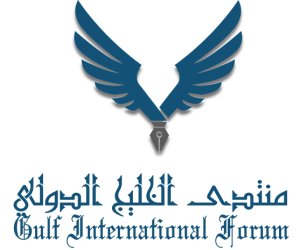Presented By: Weiser Diplomacy Center
From Conflict to Dialogue: The Shifting Relationship between the U.S., Saudi Arabia, and Iran
Dr. Dania Thafer, Ambassador John Limbert, Dr. Hesham Alghannam, Professor David Des Roches and Ms.Negar Mortazavi.

Dr. Dania Thafer, (Executive Director, Gulf International Forum), Ambassador John Limbert, Dr. Hesham Alghannam(Senior Advisor and Program Director of the International Studies Program, Gulf Research Centre Cambridge), Ms. Negar Mortazavi (Iranian American Journalist and Political Analyst), and Professor David Des Roches (Near East South Asia Center for Security Studies).
The Gulf region, Saudi-Iranian relations, and Iranian American talks are in transition. 2021 has witnessed de-escalation between the Gulf States and a clear intent to commit to dialogue rather than threats. The Saudis and Iranians are in direct talks in Baghdad. Reports about the resumption of diplomatic relations between the Gulf’s pillars engender cautious optimism that we will see an end to five years of escalating tensions that brought the Gulf to the brink of war several times.
However, the Biden Administration and Iran’s new conservative president are still struggling to resume the nuclear deal talks. The U.S. is trying to leverage the Trump-imposed sanctions on Iran to expand the scope of the JCPOA while Iran seeks leverage by increasing uranium enrichment to unprecedented levels. Meanwhile, Israeli politicians keep talking about a “Plan B” implying a vague use of force to stop Iran’s nuclear program. Furthermore, Riyadh, Washington, and Tehran (or their proxies) continue to clash in Yemen, Iraq, Syria, and Lebanon.
These events continue to play out against a backdrop of an apparent U.S. intent to “recalibrate,” i.e., reduce, its presence in the Middle East. Some argue that Biden’s withdrawal from Afghanistan “at all costs,” coupled with the withdrawal of air defense systems from Saudi Arabia indicate that Washington has a decreased interest in its commitment to its GCC partners’ security. Others argue that despite the Biden foreign policy repositioning of military forces to confront China in the Indo-Pacific region, Washington still regards the Middle East as a key battleground in its hegemonic competition with Beijing.
Will the U.S. and Iran find common ground on the JCPOA, and if so, how? What can we expect of the Saudi-Iranian de-escalation efforts? How do domestic politics in Saudi Arabia, the U.S. and Iran play a role in making (or not making) a deal? How does the apparent American reduction of force in the Gulf play into regional states’ calculations?
The Gulf region, Saudi-Iranian relations, and Iranian American talks are in transition. 2021 has witnessed de-escalation between the Gulf States and a clear intent to commit to dialogue rather than threats. The Saudis and Iranians are in direct talks in Baghdad. Reports about the resumption of diplomatic relations between the Gulf’s pillars engender cautious optimism that we will see an end to five years of escalating tensions that brought the Gulf to the brink of war several times.
However, the Biden Administration and Iran’s new conservative president are still struggling to resume the nuclear deal talks. The U.S. is trying to leverage the Trump-imposed sanctions on Iran to expand the scope of the JCPOA while Iran seeks leverage by increasing uranium enrichment to unprecedented levels. Meanwhile, Israeli politicians keep talking about a “Plan B” implying a vague use of force to stop Iran’s nuclear program. Furthermore, Riyadh, Washington, and Tehran (or their proxies) continue to clash in Yemen, Iraq, Syria, and Lebanon.
These events continue to play out against a backdrop of an apparent U.S. intent to “recalibrate,” i.e., reduce, its presence in the Middle East. Some argue that Biden’s withdrawal from Afghanistan “at all costs,” coupled with the withdrawal of air defense systems from Saudi Arabia indicate that Washington has a decreased interest in its commitment to its GCC partners’ security. Others argue that despite the Biden foreign policy repositioning of military forces to confront China in the Indo-Pacific region, Washington still regards the Middle East as a key battleground in its hegemonic competition with Beijing.
Will the U.S. and Iran find common ground on the JCPOA, and if so, how? What can we expect of the Saudi-Iranian de-escalation efforts? How do domestic politics in Saudi Arabia, the U.S. and Iran play a role in making (or not making) a deal? How does the apparent American reduction of force in the Gulf play into regional states’ calculations?